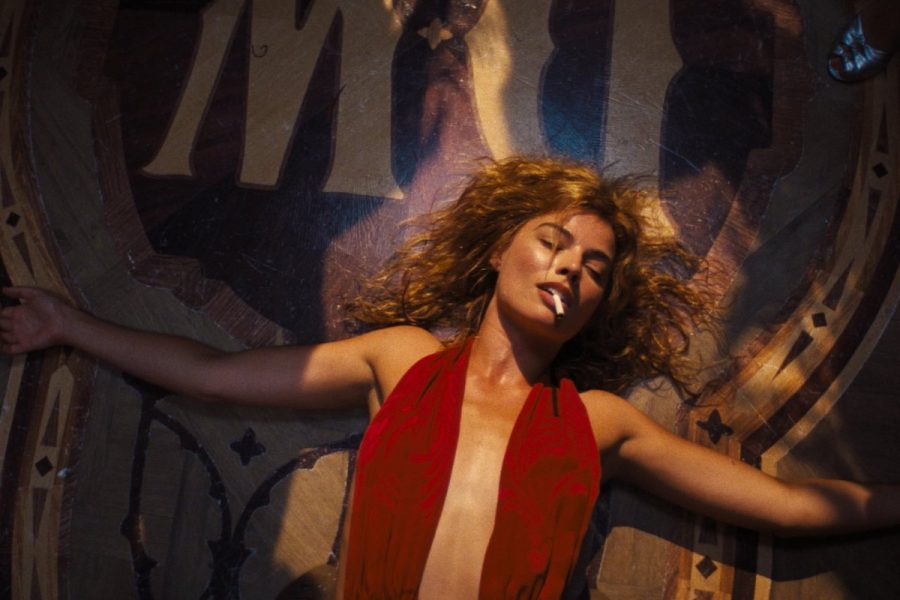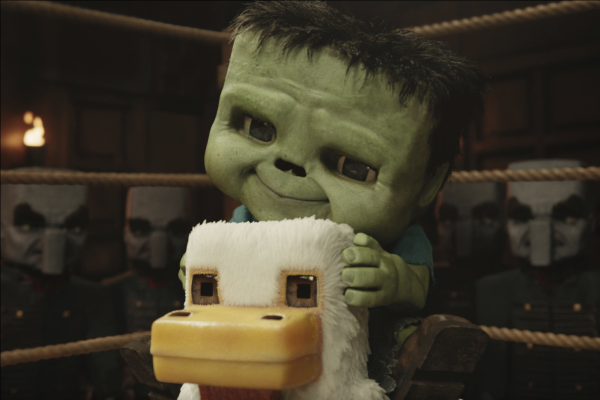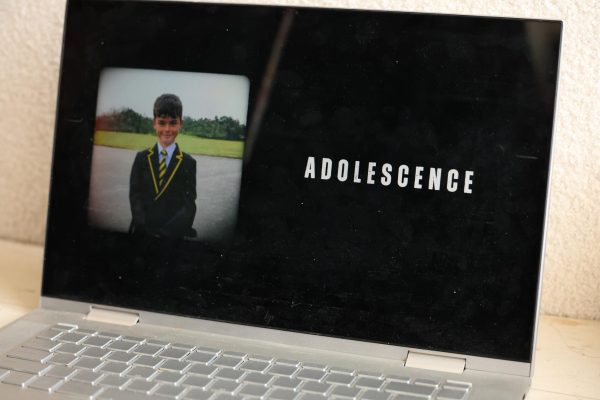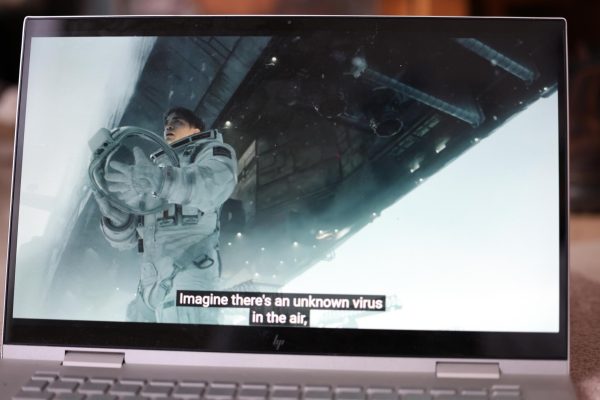“Babylon” Doesn’t Quite Hit it Out of the Park
Though not completely disappointing, Chazelle’s “Babylon” falls short of his more acclaimed films. (Courtesy of Twitter)
“All art aspires to music” — this musing, spoken by the reckless and vain movie star Jack Conrad (Brad Pitt) in “Babylon,” can be thought of as something of a maxim for director Damien Chazelle’s career. Fresh off the success of his award-season darlings “Whiplash” and “La La Land,” his new film aims the camera towards the jazz age right as Hollywood was beginning its clunky transition away from silent pictures. It’s the kind of big budget, auteurist passion project that many directors try their hand at, like a “Boogie Nights” for the roaring ’20s instead of the disco era. Damien Chazelle is among the most talented filmmakers of his generation, but in this film’s case, he’s no Paul Thomas Anderson. In some regards, the gamble of this film pays off. In other areas, however, one is left wondering just how exactly they’re supposed to feel about the images being shown.
“Babylon” is a swing-for-the-fences epic that doesn’t quite hit it out of the park, but it makes it to second base at least. The film follows an ensemble cast of characters for the entirety of its whopping three-hour runtime; Manny Torres (Diego Calva) is our protagonist, a low man on the Hollywood totem pole with big dreams, while the aforementioned Conrad must reconcile his bombastic persona with the limitations of his own stardom. Margot Robbie, playing the up and coming star Nellie LaRoy, is the film’s heart and soul, while her fiery recklessness drives her and the audience down an increasingly tragic path. Jovan Adepo plays a jazz trumpeter who ends up striking it big in Hollywood but must face its ugly underbelly head on. His story, in spite of my engagement with it, feels only cursory to the main plot, and one can’t help but wonder if a more intimate film centered around his character lies on the cutting room floor somewhere.
Jazz, of course, is Chazelle’s bread and butter. Frequent collaborator Justin Hurwitz provides a swinging score that recalls the big band jazz of old, and the film is at its best during loose, rhythmically edited sequences centered around the music. It’s puzzling, then, why the film insists upon dull long takes, something its forefather “Boogie Nights” does much better.
Speaking of Anderson’s film, “Babylon” commits a cardinal sin by reminding the audience of much better movies they could be watching instead. Looking past its reverence towards both the silent era and the large scale epics that inspired it, the film really doesn’t seem to be anything besides shocking. The main draws of the movie are the large, wild scenes depicting depraved Hollywood shindigs, which seem to just be an excuse to portray the most offensively lurid acts the filmmakers could think of. The opening sequence alone involves liberal amounts of drugs, bodily fluids and elephant feces, and the result is much less effective than it thinks it is.
Even beyond this depraved introduction, the film never eases its grip on the audience’s neck. Some breathing room would have been appreciated, as that kind of constant breakneck pace works well in tightly-wound suspense pictures but not so much in these spectacular period pieces. Occasionally, the film truly dazzles; a long day of moviemaking culminates in the magic of finding that perfect shot, and the brief depictions of jazz bands in action are kinetic audiovisual treats. The ending is especially flooring; it’s commendable in its sheer audacity and unpredictability despite being a bit out of place. Still, these scenes are few and far between, and the film could have spent far more time in the editing room. It doesn’t quite hit all the marks it wants to, but “Babylon” is almost certainly among the last of its kind.
Before the movie began playing, a brief clip of Calva and Robbie played in which they thanked the audience for “seeing ‘Babylon’ the way it was meant to be seen” in a heavily crowded theater. I was one of maybe five people in attendance. The film is something of an odd duck compared to the other ones playing at the cinema. It’s an old-fashioned, practical effects driven piece filmed on real 35mm film stock, a sharp contrast to the cheap looking digital ventures that dominate screens today. While I can’t wholeheartedly recommend it based on its merits alone, I must do so regardless solely because mid-budget auteur pictures might go extinct in the near future, just as the silents made way for the talkies. Is this shift for the better? I don’t think so, but I suppose only time will tell.













































































































































































































